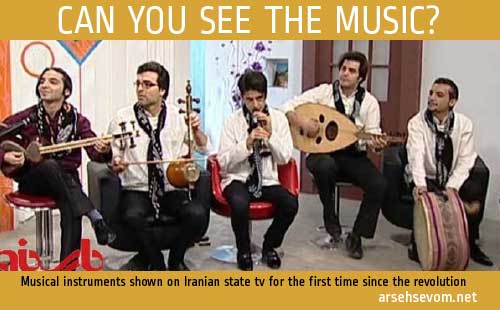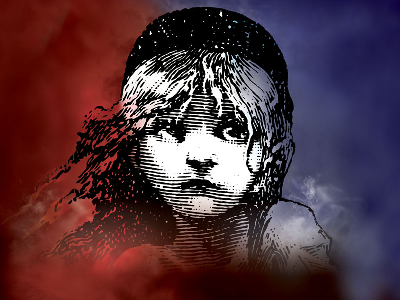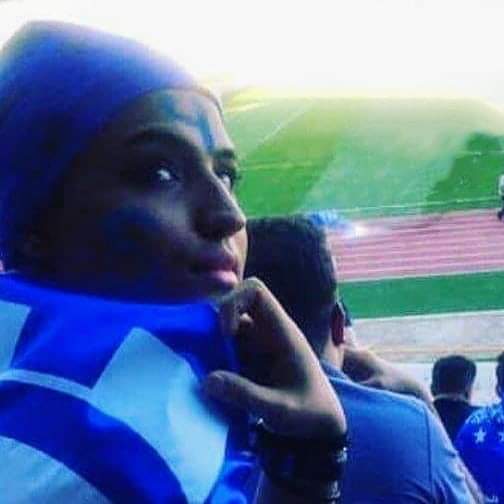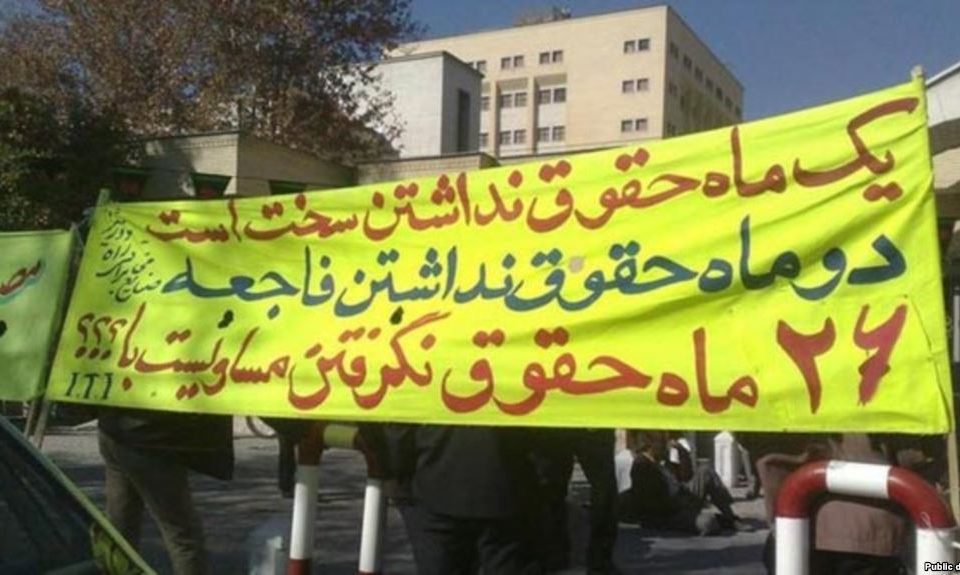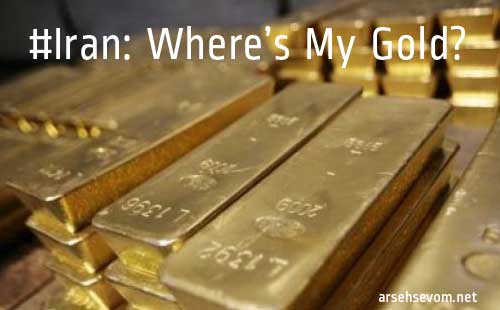
#Iran — Where’s My Gold?
January 14, 2014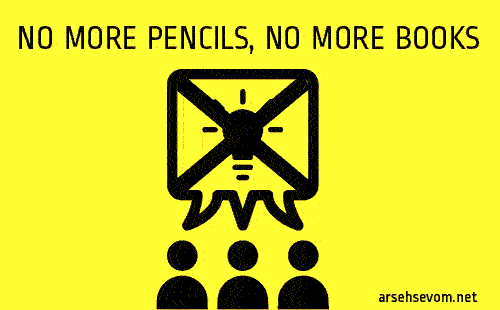
US Sanctions Law Shuts Down Online Courses in #Iran
January 29, 2014Arseh Sevom –We cherish the small victories: the small acts of solidarity, defiance, kindness. Maybe seeing musical instruments on television seems trivial, but we see it as a win. A small win, yes. But one nonetheless. The rest of the news isn’t quite as rosy: the economy remains disastrous for Iran’s working class. Promised liberalization of society is stalled. Still, the current Iranian administration works to connect Iran with the rest of the world. “The last six years have taught us that no country can succeed alone,” Iran’s president tell the World Economic Forum. Yes, and no country can thrive without space for dissent, celebration, and basic rights. We’ll be looking for more small wins in the months and years to come.
by Peyman Majidzadeh
Money Unblocked, (Certain) Sanctions (Temporarily) Lifted
Iran’s Deputy Foreign Minister Abbas Araghchi announced the timetable for release of 4.3 billion dollars of the country’s blocked money [fa]. According to him, the amount will be paid to Iran in 8 installments. At the same time, the European Council announced [en, pdf] the some sanctions relief as the Joint Plan of Action takes effect. However, not all of Iran’s financial problems stem from sanctions. According to Radiofarda [fa], 173 Iranian citizens arguably owe a sum of about 8 billion dollars to the country’s Central Bank. This amount of money, together with the blocked and frozen funds in other countries, could definitely make a huge difference in Iran’s economy and Iranians living conditions.
Musical instruments: Halaal or Haraam?
Iranian musicians face a number of limitations imposed by the authorities. For example, they need to go through an unnecessarily complex permission process.As ridiculous as it might seem, it’s been forbidden for about 35 years for musicians to show their musical instruments on Iran’s state TV. However, two important events happened on 18 January 2014. Members of the musical group Pallet got around the prohibition by pantomiming playing their instruments during a live performance on national TV. A few days later Iran’s state TV showed musical instruments [fa] for the first time since the Islamic Revolution. Let’s hope this is not just a one-off event and more relaxed regulations can be applied to music in Iran.
A Quarter Century’s Engagement in Human Rights
Iranian activists work under a lot of pressures, but they can have a strong influence in both national and international scenes, especially when they get the right kind of support. The Sakharov Prize for Freedom of Thought is a way to recognize the work of defenders of freedom of thought all over the world. Fearless lawyer Nasrin Sotoudeh and courageous filmmaker Jafar Panahi were among the laureates featured in the European Parliament’s latest study [en, pdf] on the impact of the Sakahrov Prize’s . One cannot deny the role of Iranian civil society in promoting Sotoudeh and Panahi’s nomination and consequently winning the 2012 prize they both deserved.
Iranian Workers: Les Miserables
Iranian workers are living in poor conditions. Statistics are not promising. According to reports [fa], it has been more than seven days since the Iran Tire’s workers went on strike to protest their lack of work security. The company fired 80 workers on January 25th and 130 more on January 26th. The company employs around 1,000 workers.
In a similar story, the Tehran Municipality started a plan to remove peddlers from Tehran’s metro. Almost 10 days ago a peddler escaped from subway officials who tried to collect his belongings and, according to some reports, then committed suicide by throwing himself onto the tracks. The Supreme Leader of Iran once tweeted that Les Miserables is the best novel in history while Iran is becoming that novel in reality.
VictorHugo’s #LesMisérables is the best #novel in history. It’s a miracle in the world of novel writing.I’ve said many times,go read it once
— Khamenei.ir (@khamenei_ir) September 9, 2013
Rouhani in Davos: A Global Invitation
The World Economic Forum (WEF) is best known for its annual winter meeting in Davos, Switzerland, which brings together some 2,500 top business leaders, international political leaders and selected intellectuals and journalists to discuss pressing issues facing the world. For the first time in ten years, Iran is once again represented at the Forum.
Ten years after President Mohammad Khatami attended the meeting, current president Hassan Rouhani is present. Hassan Rouhani was the star of the second day of Davos 2014 [en]. He gave his speech with his now familiar smile on lips. He invited the world to invest in Iran, acknowledging the fact that countries “are all linked through globalization.” He said, “The last six years have taught us that no country can succeed alone,” adding that his goal “is to build closer ties with the rest of the world.” It seems that Rouhani is still driving in his initial lane: using active foreign policy to improve the country’s standing in the world.
Since the beginning of his presidential term, Rouhani has tried to seize every opportunity to achieve his goals. He has planned to gain a more stable position in the international communitySince signing the Joint Plan of Action on 24 November 2013 Iran has been expecting relief from a number of international sanctions. In the latest developments, a team of inspectors from the International Atomic Energy Agency (IAEA) arrived in Tehran on 18 January to increase hopes for a sustainable nuclear deal [en] and Kofi Annan visited Iran [en] on 26 January to provide a chance to renew ties with the West. Iran is obviously trying to enhance its relations with the world.
What Rouhani said in Davos 2014 can be interpreted in this regard. The Joint Plan of Action helped Iran to escape from the pressure of strict international sanctions and now it is time to make use of the opportunity. Rouhani said on Iran’s nuke agreement: “What we have agreed to is not a temporary position, but a prelude to a lasting resolution.” Rouhani knows that a sustainable solution to the country’s nuclear case is the key to success on the international scene. Although some analysts argue that Rouhani should take domestic issues more seriously, a recent piece published on EA WorldView makes this seem unlikely.
Side-meetings at Davos 2014 proved a good opportunity for Iran to engage with the world. Rouhani offered cheap natural gas to international companies interested in investing in Iran’s petroleum projects [fa]. In the words of the Cold War: trust but verify. Let’s proceed with caution.


